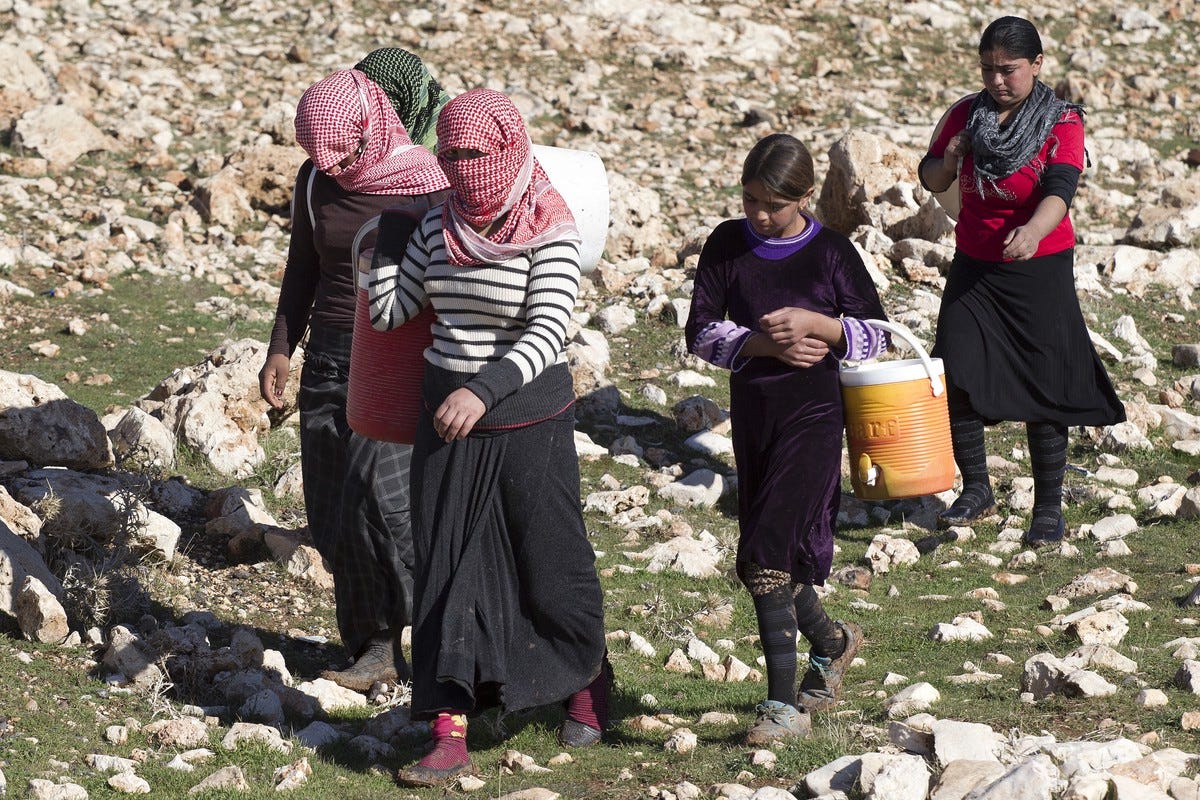
A Yezidi fighter on Mount Sinjar. Matt Cetti-Roberts photo
Victims include rival elites and ideological foes
by PATRICK BURKE
Rwanda, Srebrenica, Sinjar, Aleppo. There’s a whole generation of academics who have spent their careers attempting to explain these massacres.
Their research has largely identified three types of armed groups that commit such atrocities. The first is a genocidal group trying to wipe out a population based on religious, ethnic or some other type of group identification. The Ottoman Turks’ genocide of Armenians during World War I is one example.
The second type is an armed group that selectively kills individuals who can potentially impede its military or political goals. This kind of group mainly kills suspected enemy collaborators or combatants it captures. For example, Yoweri Musevini’s National Resistance Army in Uganda practiced selective killing throughout the 1980s.
The third is a group that kills at random owing to its inability to discipline its own troops. The Mozambican National Resistance was infamous for such killings.
So which type of group is Islamic State?

To answer this question I compiled U.N. reports and constructed a dataset of more than 6,000 executions perpetrated by ISIS in Iraq between 2014 and 2015. I noted who was killed, why, where and when.
The data suggests that ISIS is both a genocidal group and practices selective killing of perceived threats. However horrific, ISIS’s executions of civilians seems to be consistent with the group’s attempts to establish a caliphate.
Now clearly, ISIS attempted genocide against the Yazidi ethnic and religious group in Iraq. Both the U.S. State Department and the United Nations have come to this conclusion. ISIS even admitted it.

Yezidi refugees on Mount Sinjar. Matt Cetti-Roberts photo
Indeed, my data shows that Yazidis were the most numerous of ISIS’s civilian victims — 1,209.
Leaving aside the Yazidis, ISIS seems to mainly kill people it deems a threat to its caliphate. My dataset shows that 76 percent of people ISIS executed were either captured combatants or suspected of collaborating with ISIS’s enemies. The other 24 percent were noncombatants.
Although murdering captured combatants and collaborators on such a large scale is clearly a crime against humanity, the fact that this group makes up 76 percent of non-Yazidi executions shows that ISIS is generally attempting to identify people with the potential to impede its ultimate goal of forming a state.
381 of the civilians ISIS killed were Iraqi government officials and other elite professionals. ISIS’s motivation, it seems, is to erase any potential threat to its own legitimacy and replace Iraq’s governing class with its own.
Of course, tens of thousands of Iraqi government officials lived and worked in territory ISIS has occupied. So what explains the executions of just these 380 officials and other elites? It’s apparent that ISIS kills selectively.
340 of the victims were civil servants working for Iraq’s High Electoral Commission, which is “responsible for organizing, implementing and supervising all kinds of elections and referenda.” Their murders sent a strong signal to the local population that the Iraqi state was no more.
The remaining 41 victims mostly were politicians, journalists and imams. Interestingly, most were executed after standing trial in one of ISIS’s courts — which seem to represent yet another attempt by ISIS to construct a “legitimate” government.
The second largest group of civilian victims — 229 — is made up of families of tribal fighters. ISIS abducted and executed more than 200 members of the Albu Nimr tribe in Anbar province, apparently in reaction to members of that tribe fighting against ISIS in the province.
ISIS, like many insurgent groups throughout history, kills family members of its enemies in order to quell continued resistance and deter other tribes from joining.
ISIS is on its heels in Iraq. Trying to understand why the group was initially so successful and what finally caused its downfall could require years of study.
But we can safely conclude this — the group’s selectivity about who it kills indicates that it generally maintains a disciplined fighting force. We can also conclude that ISIS is deeply committed to its ideology, even when that commitment emboldens its enemies.
The attempted genocide of the Yazidis is evidence of this. ISIS’s remorseless attacks on Yazidis in Sinjar spurred the U.S. intervention starting in late 2014 that has been instrumental in reversing the militants’ gains
Comments
Post a Comment